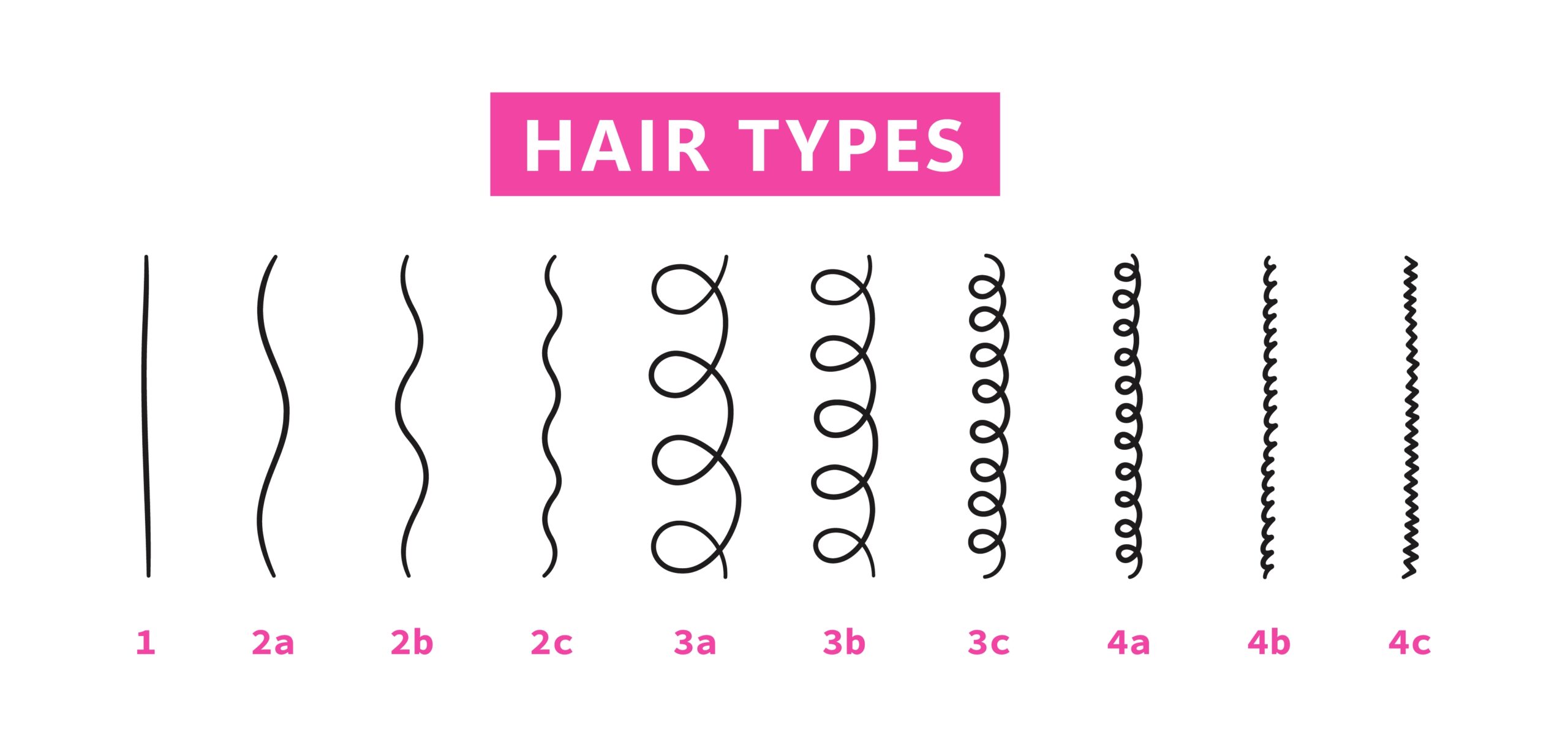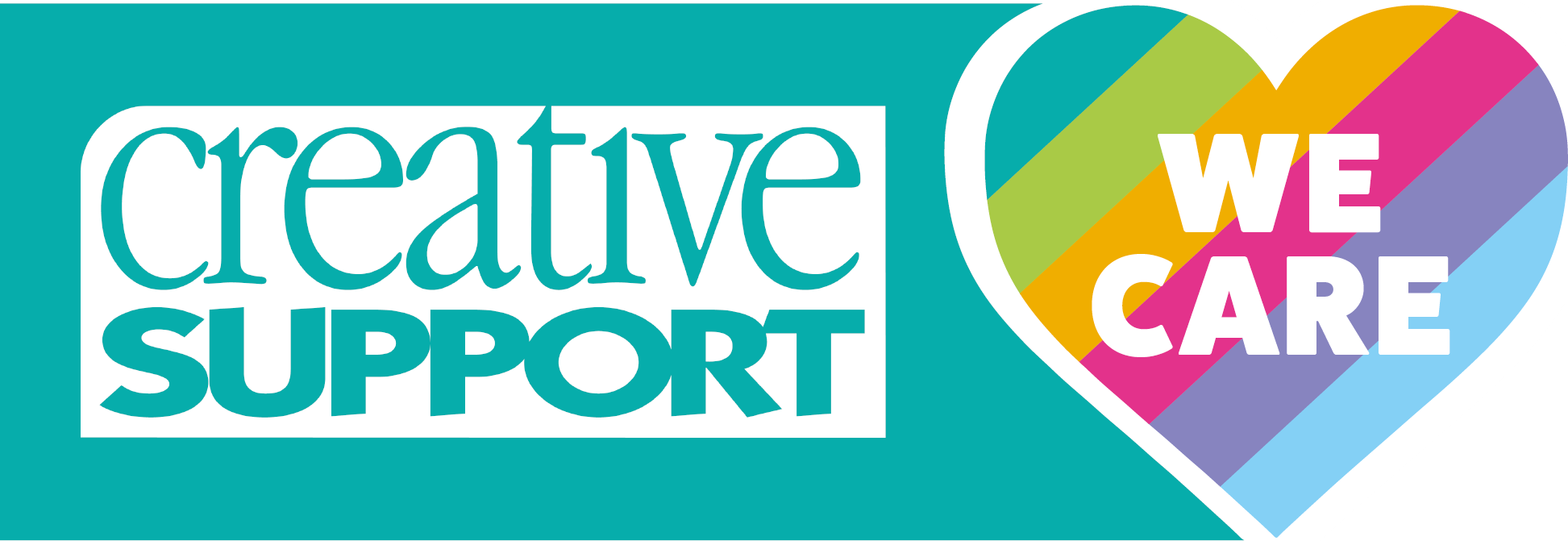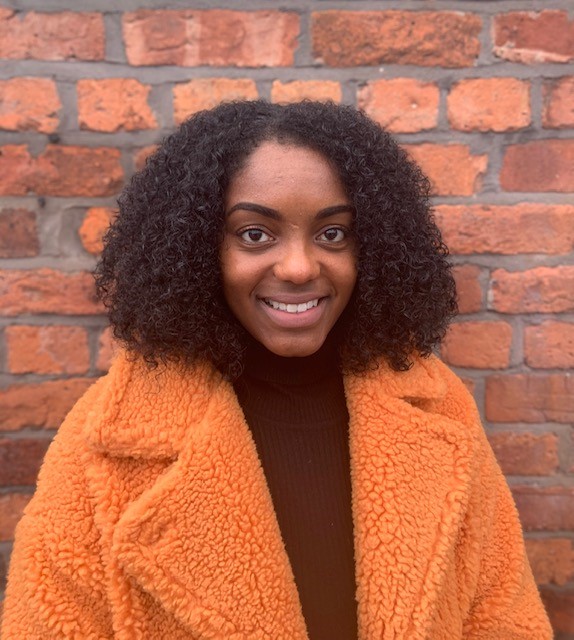Hair Types and Hair Care

Black hair is not just about how it looks, it’s about someone’s personal preference, identity, and culture. There are different types of Black hair such as straight, wavy, curly, or afro hair, and these all include different lengths, textures, and styles.
The hair categorising system was invented by Andre Walker, a hairstylist born in Chicago in 1956. The ‘Andre Walker Hair Typing System’ was first used in 1997 as a way for Andre to promote his brand of hair care products to people across America.
The hair type system puts the different hair types, textures and characteristics into four different categories:
The hair characteristic for natural Black hair is type 3 and 4 and ranges from hair that is visibly curly and wavy, to afro hair that is much thicker and more tightly curled. People can also have different types across their head and there isn’t a one size fits all. For example, someone with afro hair might naturally have 4A hair at the back of the hair and 3B hair at the front.
Protective hairstyles come in different forms such as cornrows, braids or locs. Natural hair that is covered with a head wrap is also a protective style which helps protect the hair from different elements. When hair is in the range of 3A to 4C, and is not worn in a protective style, hair products must be used to add moisture into the hair to style it and prevent breakage. It’s also important not to wash afro hair every day. For most Black people, washing their hair every day would result in extreme dryness, breakage, and potentially scalp irritation. Afro-textured hair needs more time to build up moisture so washing our hair every day would strip the hair of the vital nutrients it needs to retain the curl pattern and be easily styled.
Some examples of wash day routines from our staff of colour highlight that everyone’s hair care journey is different, and different hair types require different levels of maintenance depending on personal preference. For Black men and women, hair care is a personal journey and the products that people use are personal to them.
Kizzy, Equality, Diversity and Inclusion Lead [pictured left] said: “I have shoulder length 4A and 4B hair and look forward to my wash days! My wash day routine consists of a shampoo with eucalyptus in it, which smells amazing, and helps clean my hair. I then use a creamy conditioner packed with coconut and avocado oils in it. When my hair is damp, I apply a natural black castor oil on it to lock in the moisture, and then I comb through it and use a thick leave-in conditioner cream. My hair takes a very long time to dry, sometimes a whole day, so I plait my hair overnight until I am ready to style it in the morning. There are lots of different products involved in washing my hair, so I use all-natural products and make sure I don’t use anything with too many harmful chemicals in.”
Marlene, Financial Accountant said: ‘My hairstyle is known as ‘Sisterlocks’. I have to have each lock of my hair retightened every 8 to 10 weeks by a loctician which can take 2 to 3 hours, but is well worth it because of the easy maintenance. Washing it is another story because with it being so tightly locked, the rinsing takes ages and reminds me of trying to rinse a soapy sponge! People ask why we have ‘Sisterlocks’ and it’s because it’s a way that afro hair can grow the length and be styled in any way, even though you may see me at work with it just tied up day in and day out, it can be styled, honestly.’
Grace, Operations Manager said: ‘I wash my hair once a week using Cantu hair shampoo. I then use the Cantu hair curling cream, to give my hair sheen and curl’.
 Precious, Senior Finance Administrator [pictured left] said: ‘In recent months, many people have noticed me wearing a new hairstyle, a short natural Afro style also known as the 4C type. Many have further assumed that I dye my hair. This has been my natural hair colour since I was a teenager, a genetic factor that runs in the family, with some family members getting this colour as early as 10 years of age. For many years, I have coloured and processed my hair, keeping up with the dynamic fashion trends. I shampoo my natural hair once every week. I massage and moisturise the hair and scalp every day, to help it thrive and keep the natural texture soft, smooth, and defined and I use a hot oil treatment twice a month.’
Precious, Senior Finance Administrator [pictured left] said: ‘In recent months, many people have noticed me wearing a new hairstyle, a short natural Afro style also known as the 4C type. Many have further assumed that I dye my hair. This has been my natural hair colour since I was a teenager, a genetic factor that runs in the family, with some family members getting this colour as early as 10 years of age. For many years, I have coloured and processed my hair, keeping up with the dynamic fashion trends. I shampoo my natural hair once every week. I massage and moisturise the hair and scalp every day, to help it thrive and keep the natural texture soft, smooth, and defined and I use a hot oil treatment twice a month.’
Errol, Maintenance Officer said: ‘In the early days I used to just wash and grow. But over time my hair got dryer and eventually, parts of the back of my hair started to break and fall out. I checked with my wife and she said “Grease your hair – Hair loves moisture.” It took a few months and now my hair is pretty healthy. Hair products I use on a daily are a mixture of Avocado oil, black castor oil argon oil, and sweet almond oil. I will usually wash it every couple of weeks. Sometimes my wife will plait it but she also has her hair journey. In my 20’s, 30’s, and 40’s I was part of the barbershop crew – Bold, fade bald Mike Tyson part. This was to fit in with all my peers who wore baldies or Rasta hairstyles. Rasta was not welcome in my house growing up – my parents were part of that era where it was encouraged to not trust men with long hair. Love seeing the youngers nowadays embracing the hair culture. Hair is powerful, ask Samson!’
Your hair type tends to be determined by your genes, but you can change your hair type synthetically by using products such as chemicals or heat. There have been some recent studies, such as the study by Tamarra James-Todd via the National Institute of Health, that have reported that people who frequently use hair straightening products were more likely to develop certain health issues such as cancers or experience certain health disparities. Although these studies are mainly done in America concerning American hair care products, these are still relevant to the UK. There is speculation that there are many hair products and hair care brands on the market more commonly used by Black people that are causing serious health problems for the Black community.


